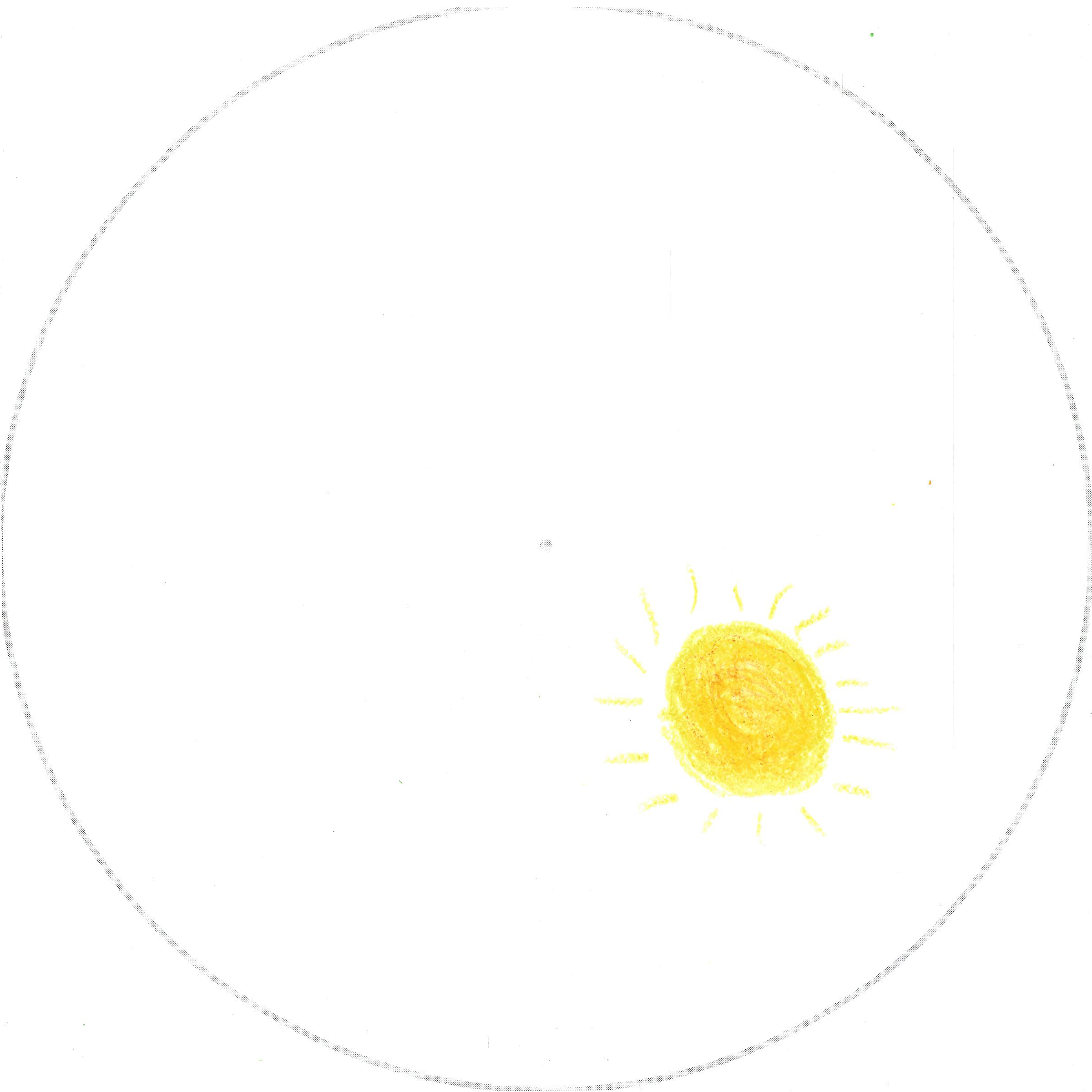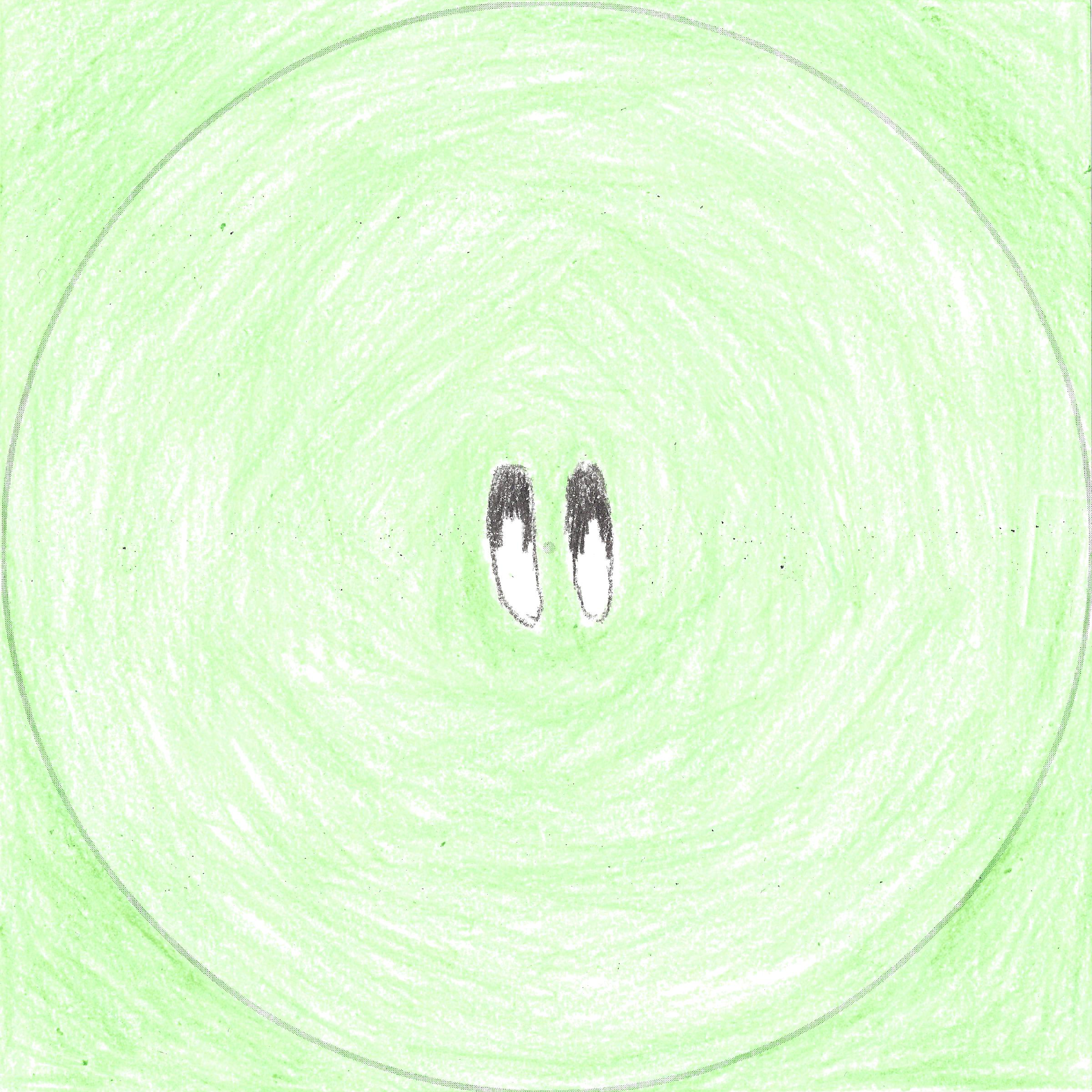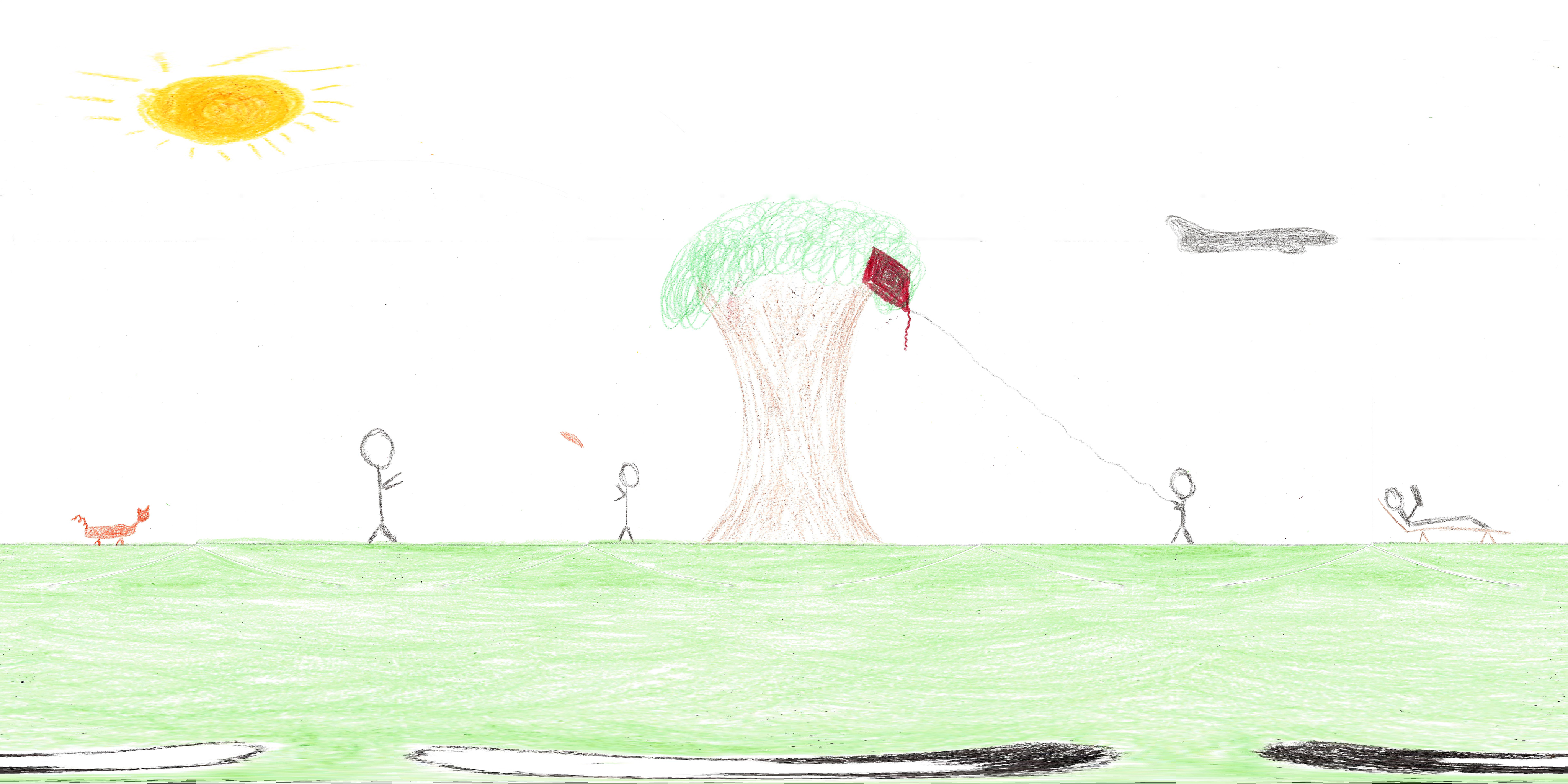CubeDraw: 360° from Paper to VR
The
Annotated Reality Design for Novices project's
CubeDraw
explores a way for non-technical co-designers to express their ideas
for a 360°
world and work with a design partner with basic programming experience to
rapidly bring it to life.
Below is an example of how such a 360° creativity project might
get started.
To start to prototype a VR/AR experience,
the co-designers
could take six squares of paper to brainstorm and then draw a "full" 360°
scene as if on the inside of a cube or sphere
(the following example shows guide
lines on the paper for a sphere's ground and sky "true" lines)...

| |||

| 
| 
| 
|

|
Next, scan each square in at 300dpi and use
a simple image editing program to straighten each scan
if needed, crop the scans to a 2400x2400 pixel image,
quickly erase any "guide" lines if needed,
and either
use Hugin to turn those six individual images into an equirectangular image
or use a
free website
to create such a 2:1 aspect ratio image...

Then the more technically-minded co-designer could pop it into a coordinate finding page to then work with their partner to determine where certain things are happening in 3D space. With that information, the more technically-minded person can then quickly modify an HTML/JavaScript template to create a VR experience in which they can explore this prototype on tablets, smartphones, in an Oculus, etc.

In the above you can click and drag within image to explore 360-degree view that would exist in the VR headset and can center the gray gaze target over "info" buttons to find out more about what you see. If you are using a mobile device or Oculus, you can click here to see it that way (it might take a minute to load).
For more information about this project, please contact Evan Golub